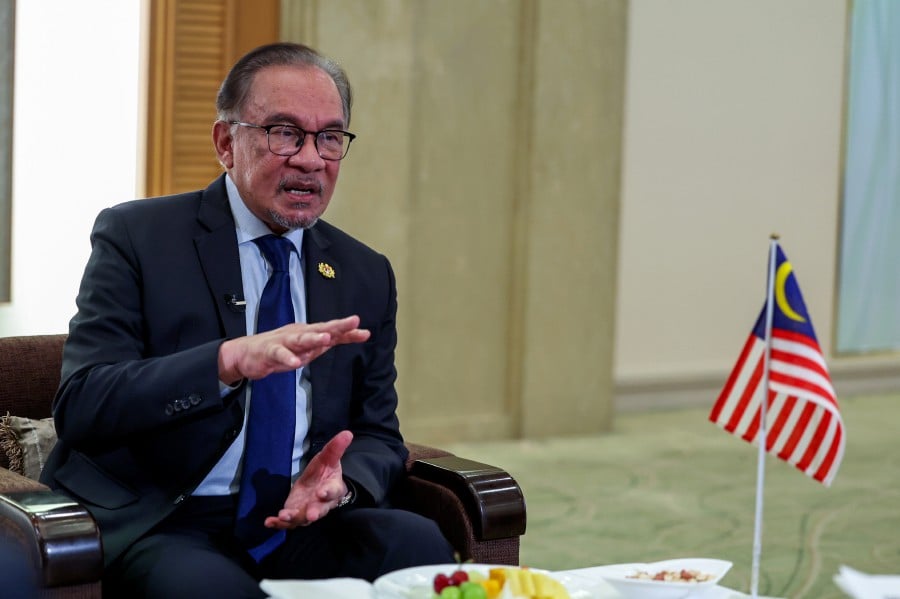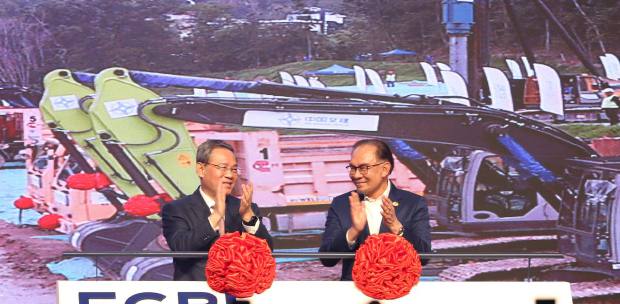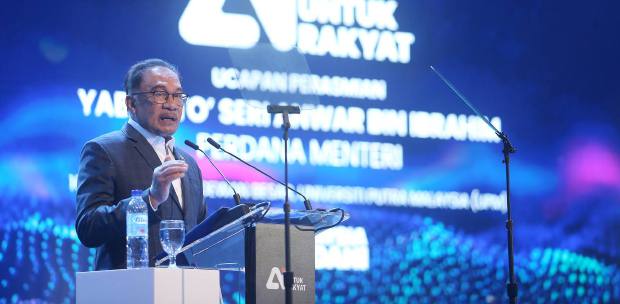TIME and patience are needed from the people when they try to benchmark Prime Minister Datuk Seri Anwar Ibrahim's performance. In terms of addressing shortcomings, he needs time.
In speaking up to the nation recently on the economic health of Malaysia, Anwar affirmed that we are growing at 4.2 per cent this year instead of 3.9 per cent. Perhaps a difference of 0.3 per cent means nothing. But at least Malaysia is not dipping into recession. Why is this important?
To be sure, in and around November and December of 2023, all the economists in the United States were expecting it to face a recession with China projected by the International Monetary Fund (IMF) to grow at 4.5 per cent, a difference of almost one per cent.
Malaysia is a trading nation that cannot do without the US and China, or for that matter, the European Union and G20. When Malaysia is able to show growth of 4.2 per cent, which is stronger than the originally anticipated 3.9 per cent, that implies the country has the chance to do even better in the next six months.
In fact, Germany's foreign direct investments are pouring in by more than RM46 billion. This is a powerful signal that Malaysia has the trust of a country that has generally been wary of anyone that is too critical of Israel.
It is fortunate that at least 25 per cent of Malaysia's Gross Domestic Product is dominated by Malaysian exports. The lower the ringgit, the more powerful this sector will be — not dissimilar to the economic strategy of China, Japan and South Korea.
Thus, when the prime minister came out with a report on the state of the Malaysian economy, without even trying to blame the complex geopolitical variables for the harsher living conditions of the Malaysians in the M40 and B40 brackets, Anwar can be said to be on the right track.
Perhaps he should not be unduly worried about the nation's debt to GDP ratio. Look at Singapore and Japan, each of which has a debt to GDP ratio of over 100 per cent. Yet, Anwar is adamant that the national debt should not go any further without which the ringgit may be badly mauled by the short traders.
Granted that the key is not to allow any systemic corruption to become a structural element of Malaysia. Given all of the above, economists in Malaysia should welcome this address by Anwar. Whether it can or cannot satisfy all sectors of the people, at least there is an effort to give a report card to the voters and non-voters of the government.
Lastly, as work is pretty much in progress, Anwar must not let down his guard in providing transformational leadership.
DR RAIS HUSSIN
Founder of EMIR Research,
Kuala Lumpur





